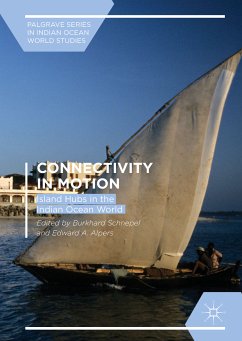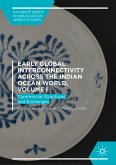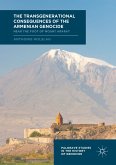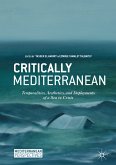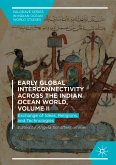This original collection brings islands to the fore in a growing body of scholarship on the Indian Ocean, examining them as hubs or points of convergence and divergence in a world of maritime movements and exchanges. Straddling history and anthropology and grounded in the framework of connectivity, the book tackles central themes such as smallness, translocality, and "the island factor." It moves to the farthest reaches of the region, with a rich variety of case studies on the Swahili-Comorian world, the Maldives, Indonesia, and more. With remarkable breadth and cohesion, these essays capture the circulations of people, goods, rituals, sociocultural practices, and ideas that constitute the Indian Ocean world. Together, they take up "islandness" as an explicit empirical and methodological issue as few have done before.
Dieser Download kann aus rechtlichen Gründen nur mit Rechnungsadresse in A, B, BG, CY, CZ, D, DK, EW, E, FIN, F, GR, HR, H, IRL, I, LT, L, LR, M, NL, PL, P, R, S, SLO, SK ausgeliefert werden.
Hinweis: Dieser Artikel kann nur an eine deutsche Lieferadresse ausgeliefert werden.

